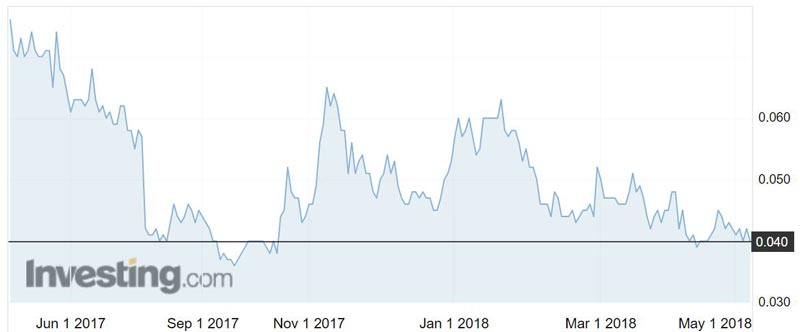Peak investors hesitate over higher capital raising, but boss sees share price uptick coming
Mining
Mining
Shareholders in rare earths player Peak Resources appear to have reservations over a London resource fund’s decision to take part in the company’s capital raising.
Peak’s (ASX:PEK) share price dipped nearly 5 per cent to 4c after the company announced its capital raising sum will increase by about $1 million to $7.3 million. The increase is due to Peak’s biggest shareholder Appian Natural Resources wanting to maintain its 14.1 per cent stake.
Although the increase in funds is good news for the company, it exchanges some of the company’s debt for the issue of new shares, which could mean dilution for existing shareholders.
“Obviously there’s always a concern when you add more money that you’re going to have some dilution, but the goal here is to basically get the Tanzanian work done and get the project moving in a positive direction,” chief Rocky Smith told Stockhead.
“I think when we start to make those things happen then I think the price will make a change.
“It’s been significantly de-valued because of the Tanzanian issues.
“We see more positive news there all the time. So we’re expecting that to get better.”

The east-African nation stunned ASX resource plays in July last year with sweeping changes to its Mining Act, including compulsory 16 per cent government ownership of mining companies.
Appian’s just over $1 million contribution will be deducted from the outstanding loan facility balance of $US2.2 million.
The fund’s focus is on investments primarily in miners that already have a resource and are roughly three years from production.
Peak Resources is developing what it says is one of the world’s largest and highest grade undeveloped neodymium and praseodymium rare earths projects.
Neodymium-praseodymium is used in the manufacture of the magnets that are used in the automotive industry for electric components such as seats, mirrors, wipers, steering and braking, as well as the actual motor.
While traditional petrol or diesel combustion engine motor vehicles each use about 700 grams of neodymium-praseodymium oxide, electric or hybrid vehicles require an extra 1 kilo.
Demand for neodymium-praseodymium oxide is expected to grow at 8 per cent each year to 2025 from the current global consumption of 33,340 tonnes.
Peak is in the process of trying to secure a special mining licence (SML) for its Ngualla project in Tanzania.
An SML is restricted to major mining projects that have a capital investment over $US100 million ($132.9 million) and offers advantages over a mining licence in terms of the maximum area and period of tenure that can be approved.
“[Appian’s] waiver of the mandatory loan repayment ensures we have adequate funding to pursue the near-term objectives of acquiring the special mining licence and pursuing and advancing off-take discussions to support project development financing,” Peak chairman Peter Meurer told investors.
With a new Mining Commission now in place, the Tanzanian government can begin reviewing mining licence applications.
Mr Smith expects to have the SML locked away within three to six months, or even sooner if possible.
“We are one of the first three SMLs to be reviewed once they start their process and so we’re anticipating the chance to get in there and have the dialogue with them with respect to the business within the next month and hopefully it doesn’t take us that long to come to some agreement,” he said.